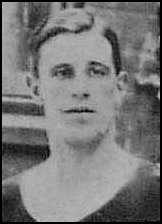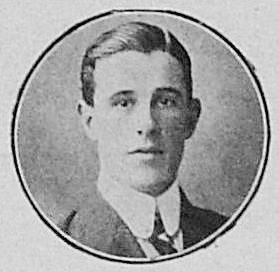Category: Military
Rank: Private
Regiment or Ship: 4th Bn Hampshire Regiment
Address: 17 Beaconsfield Road, Bexhill
Photos and newspaper articles
First World War Experience
Prosser was a prisoner of war during the First World War. On the 25th January 1919 the Bexhill Observer published a letter from Prosser to Mrs Kate Rawlins which gave details of his time in a German POW camp. In particular his time in Sennelager Camp. Here is the Observer’s report:
A young Bexhill man, Private H. E. Prosser, Hampshire Regiment, whose experiences in captivity were recently published in the “Bexhill Observer,” has given additional details in an interesting letter to Mrs Kate Rawlins, in which he refers to the kind efforts and work of the Red Cross in sending parcels.
Describing his four years in Germany, and especially the time in Sennelager Camp, Private Prosser says: – “I have seen Englishmen fight between themselves till they became exhausted over the crumbs which were left after the small portions of black bread had been cut up and distributed. Potato peelings were eagerly sought for, and cooked and eaten. I have seen hundreds of men smoking peat, having no Tobacco, and tea leaves were dried and smoked.”
The Camp was surrounded by double barbed wire, with electric wire between. On one occasion a German workman was working near this, filling in the space beneath with sand, when suddenly his foot slipped on the spade and he fell against the livewire. Death was instantaneous. Some of the Germans threw a steel rope over to the man, with the intention of directing the current into the earth, but the rope fell across the wire and the man together, directing the current into him. Private Prosser continues, “We then saw the body slowly burning. On the other side of the wire stood the Germans, some laughing at the ghastly sight. When the current was turned off half the man’s body was burned away.” Many inventions were made by the English and French to carry the current into the earth and allow them to escape. One invention by a Frenchman was like a bassionette to be pushed against the wire. It was tried by an Englishman on a dark night, the idea being to let it go before it touched the wire. However, it was not a success. A tunnel was then dug under the wires to a bush about ten yards beyond. It was started under the hut nearest to the wires, and the men worked at night for three months. Another night would have seen it finished, but it was discovered through treachery on the part of a man of another nationality. It took the Germans two hours to find the entrance to the tunnel.



